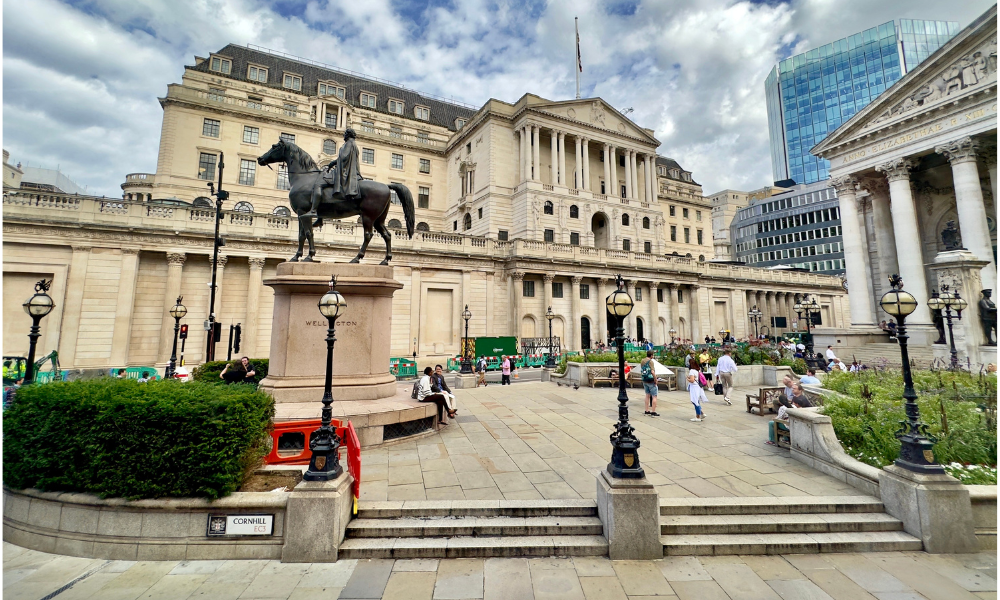The mortgage industry has reacted to the first cut since early 2020

March 2020 was a month that few of us will forget. It was in that month that the COVID-19 outbreak was declared a pandemic by the World Health Organization, and we all know what followed – whether it was lost loved ones, frustration at a lockdown, or controversy over the effectiveness of vaccines, it was a period that will long live in the memory.
Since then, we’ve seen Joe Biden become US President and subsequently step down in the lead up to another election, turmoil has rocked British politics, a war broke out in Ukraine, there have been the horrors of Israel and Palestine, an inflation crisis, Liz Truss, the death of our longest reigning monarch and a new government. What we hadn’t seen since that fateful month, however, was a Bank of England base rate cut – that was, until yesterday.
When the Bank of England chose to ease rates from 5.25% to 5.0% it was music to the ears of most mortgage lenders – many of whom had already priced in a cut in recent weeks despite the decision being on a “knife-edge”. However, now that it’s happened – what does it mean for the market? Mortgage Introducer gathered the views of a host of industry experts.
Greater optimism among buyers and sellers
For Nick Leeming, chairman of Jackson-Stops, the move means positivity on both sides of the home buying fence.
“For the property market, the hope is that a cut to the base rate will stimulate greater optimism and activity from buyers and sellers, with the likelihood that a reduction in mortgage rates will follow suit swiftly to ease affordability decisions,” he said. “It will be particularly significant at the lower end of the market which will then create opportunities for movement in the middle and top end where there has been a smaller pool of buyers and properties to choose from in recent years.
“While many moving decisions are unavoidable driven by lifestyle decisions such as schools and jobs, those with more speculative but less urgent reasons to make their move have been on a temporary hold. A cut to the base rate is exactly what is needed to power up leisurely buyers, opening up market opportunities more broadly.”
There were similar words uttered by BSA head of mortgage and housing policy Paul Broadhead, who described the decision as a “turning point”, noting “it is likely to boost consumer confidence and lead to an increase in housing market activity.” Similarly, Stephanie Daley, director of partnerships at Alexander Hall, suggested the move created “significant opportunity”. “While mortgage rates may not drop immediately, this change should help release pent-up demand in the market, restoring confidence among buyers and those looking to move house who had delayed plans due to higher rates,” she said. “Over the past three years, many clients opted for longer mortgage terms, especially home movers and those remortgaging. The drop in base rate should ease affordability concerns, making longer-term lending, now available up to 40 years, more feasible and appealing.”
Focus on specialist lending – and brokers
Still, the idea that everyone who has been browsing Rightmove and Zoopla in the last few months is suddenly going to run to their local estate agent and make an offer seems far-fetched. Instead, the emphasis will be on specialist lenders and brokers to find deals that make the home buying process seem appealing at a time when rates still appear drastically inflated compared to just a few years ago.
“Despite the rate cut, borrowing costs remain extremely high, so flexibility for borrowers and brokers remains essential,” said Paresh Raja, CEO of Market Financial Solutions.
“Therefore, any potential rebound in the UK property market will hinge on the specialist lending sector. A recent survey shows that a substantial majority of bridging lenders expect loan volumes to rise over the next year. Given the uncertainty about future rate cuts, lenders should be offering a range of product options to accommodate brokers’ and borrowers’ needs and interest rate expectations.”
Raja may get his wish – with lenders such as Keystone Property Finance and MPowered Mortgages making rate changes just hours before the BoE decision was confirmed, and even a mainstream lender, Santander, quickly following with a rate move of its own.
Still, caution remains, with Stephen Gomez, specialist mortgage adviser at Wesleyan Financial Services, noting it will “not alleviate all the problems” that homeowners and prospective buyers have faced. “House prices still remain high and the lack of affordable housing, coupled with high rents that make it more difficult to save, means the dream of homeownership remains unattainable for many,” he said.
“The new government’s proposed housebuilding reforms are promising, but it must focus on increasing supply of truly affordable housing to help more prospective homeowners get on the ladder and stimulate further activity in the market.”
A market of opportunity
Still, what’s clear by the bombardment of reaction is that the UK property market finally has an air of optimism again – and that spells opportunity for lenders and brokers alike.
For Ryan McGrath, director of second charge mortgages at Pepper Money, the hope is that homeowners will think outside the box in how they approach their debt now that rates are starting to fall. “For homeowners who are juggling significant amounts of unsecured debt and want to avoid paying interest across multiple loans or credit cards, then bringing debt together with a homeowner loan could be a more manageable long-term option,” he said.
Meanwhile, David Hollingworth, associate director at L&C Mortgages, noted that the biggest boost will be to consumer confidence. “That will be important reassurance to many that have been scarred by the turbulent and volatile periods in the mortgage market over the last couple of years,” he said.
Many of you reading will be bearing those scars too – perhaps now, you too can start to heal.



